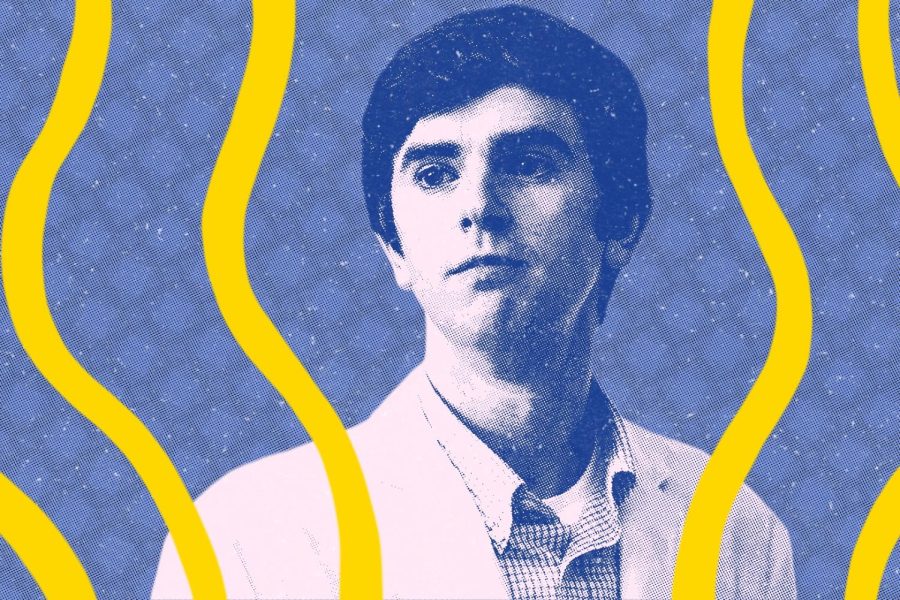The resurging debates about “The Good Doctor”
Courtesy of ABC; edited by Ivan Mendoza
In early May, “The Good Doctor” began to grow in popularity across TikTok’s massive platform. With users posting certain clips out of context, the cable television show recently turned heads for its absurdity and dramatization. The show also faced criticism for its depiction of autism spectrum disorder (ASD), even though the show does an excellent job in its portrayal.
May 17, 2023
Ever since its initial release, TikTok has shifted the way people consume media while influencing other platforms. For example, YouTube Shorts and Instagram Reels only exist due to TikTok’s popularity, and an entire section of TikTok remains dedicated to reuploading random movies and TV clips without context. “The Good Doctor” follows Shaun Murphy, a young surgeon with autism and Savant syndrome. Despite the show’s release in 2017, TikTok’s unpredictable algorithm popularized clips of Murphy’s outbursts without context, resulting in memes of Murphy yelling and crying. People on TikTok have decided to saturate a certain clip where Murphy tells another doctor “I am a surgeon”, and instead replaced the word surgeon with “SpongeBob” or “Sturgeon”. While the saturation of an autistic meltdown can seem offensive, people with autism have found issues with certain aspects of Murphy’s portrayal and have reopened a discussion about autism representation on television.
“The Good Doctor” acts as a spinoff of a short South Korean medical drama that was released in 2013. While the American version also follows an intelligent surgeon with Savant syndrome, the show recently released its Season 6 finale and has aired a total of 117 episodes. “The Good Doctor” portrays Murphy, played by Freddie Highmore, as an intelligent person with a photographic memory but struggles with sensory issues and understanding social cues. In fact, the show excellently portrays Murphy’s surgical abilities. However, experts have claimed that TV shows and movies repeatedly depict autism as a “superpower”, a reductive trope initially started by “Rain Man”.
The show also manages to portray other people on the spectrum as Murphy takes care of autistic patients in episodes such as “22 Steps”. The show’s ability to portray a variety of people with autism spectrum disorder (ASD) highlights how the disorder contains an entire spectrum of people. In other words, it positively showcases that not every person with ASD behaves in the same way. “The Good Doctor” accurately depicts other disorders such as obsessive-compulsive disorder (OCD) with the critically-acclaimed episode “The Good Lawyer.” In this episode, Murphy looks for legal representation from a lawyer with OCD, and the episode accurately depicts the lawyer’s necessity for perfection with visual effects and dialogue. Throughout “The Good Lawyer”, both of the characters mutually understand each other’s struggles with their respective disorders, as they feel like outcasts because of their differences and atypical behavior.
“The show does a great representation of people with autism in the workplace. I believe that Shaun Murphy’s portrayal helps debunk the common stereotype that people on the spectrum aren’t smart or unable to successfully perform tasks because that is very much contrary to reality,” magnet junior Ndiya Onuoha said.
With clips of Murphy taken out of context suddenly gaining millions of views, the TikTok algorithm has blown the show out of proportion. Due to his disorder, Murphy may not understand social concepts and may take phrases literally. Recently, a clip of Murphy telling a transgender girl that they remain biologically male has received various fast-paced edits on TikTok. These edits have resulted in comments that either agree with Murphy’s naive comments or will purposely mock the protagonist’s disorder. The clip also negatively enforces transphobic ideas, even though numerous people with ASD identify as transgender or gender diverse. The naiveté of Murphy can also seem dramatized by his casually accusing a Middle Eastern girl of being a terrorist and his communication limitations putting lives at risk during a robbery.
“While the attempt at proper representation has had some powerful moments of showing the reality of living with autism, the show often over-generalizes in order to cater to the largest audience possible,” magnet junior Anna Beth Hirshfeld said.
All in all, “The Good Doctor” remains a fairly decent show that recently gained popularity for absurd reasons. While the show suffers from a lack of writers and actors with autism—they also support the controversial organization Autism Speaks— the show portrays its protagonist in a positive light.






